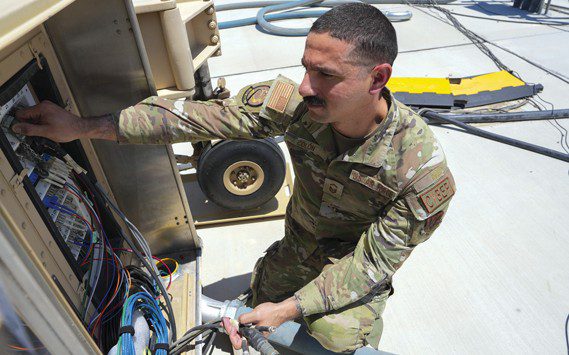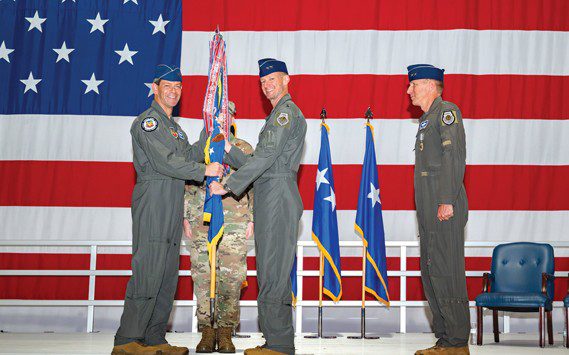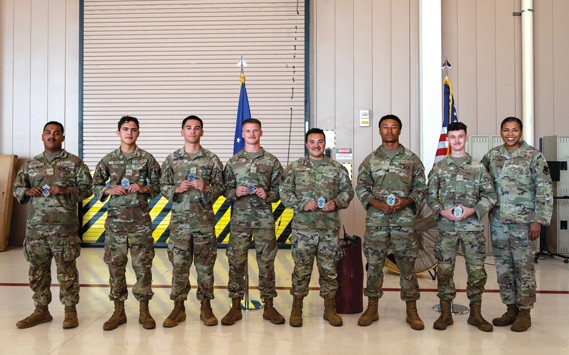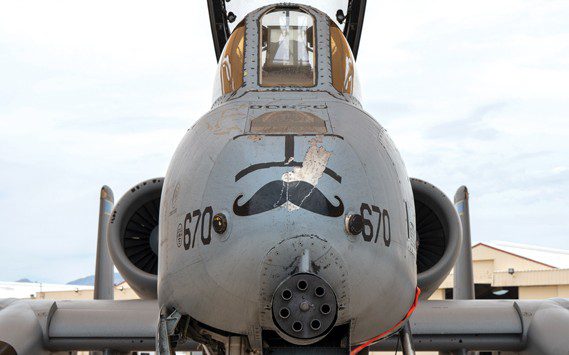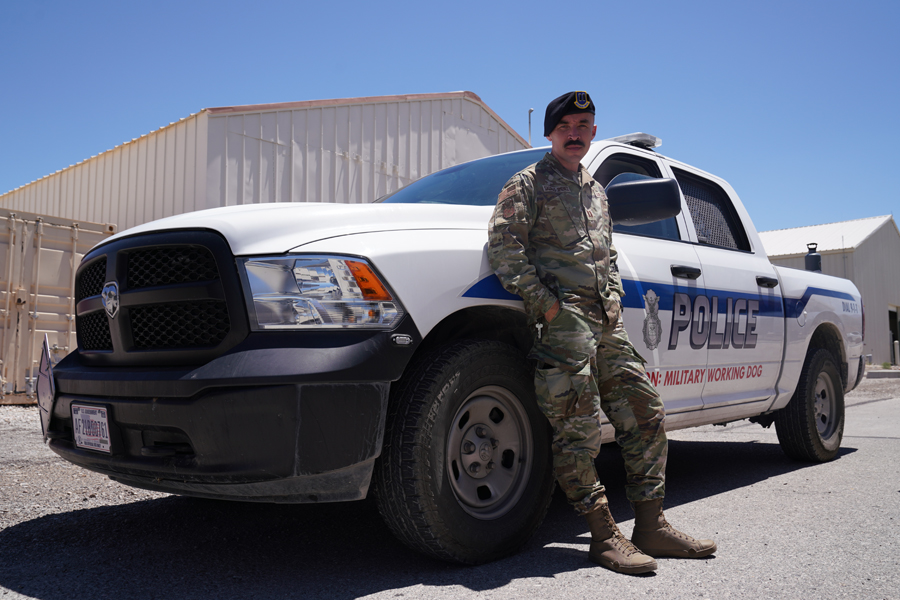
A young man lay sprawled out on his friend’s couch after another grueling shift at the pizza parlor, reflecting on where his life had headed.
He had a degree to be a computer programmer and he was ready and able, but the recession had dried up all of the jobs and forced him to sling pizzas instead. He knew he was destined for more; he just needed a leg up.
When he spoke to his mother about it, she agreed and recommended he visit a U.S. Air Force recruiter. It seemed like the answer to all of his problems. There was just one glaring issue that complicated things: the military had a policy called “Don’t ask, don’t tell, also known as DADT, wherein a member would be dishonorably discharged if they were discovered to be LGBTQ+. This would affect him if he joined.
That young man was Capt. Roberto Salinas-Jimenez, now assigned to the 432nd Security Forces Squadron at Creech Air Force Base, Nev. His story is unconventional, beginning with his dropping out of high school. Once he earned his diploma at a continuation school, he attempted to become a computer programmer with his trade school degree, only to encounter the ripple effect of an economy in recession. Not seeing any sort of longevity in working at a pizzeria, he joined the Air Force as a means to support himself.
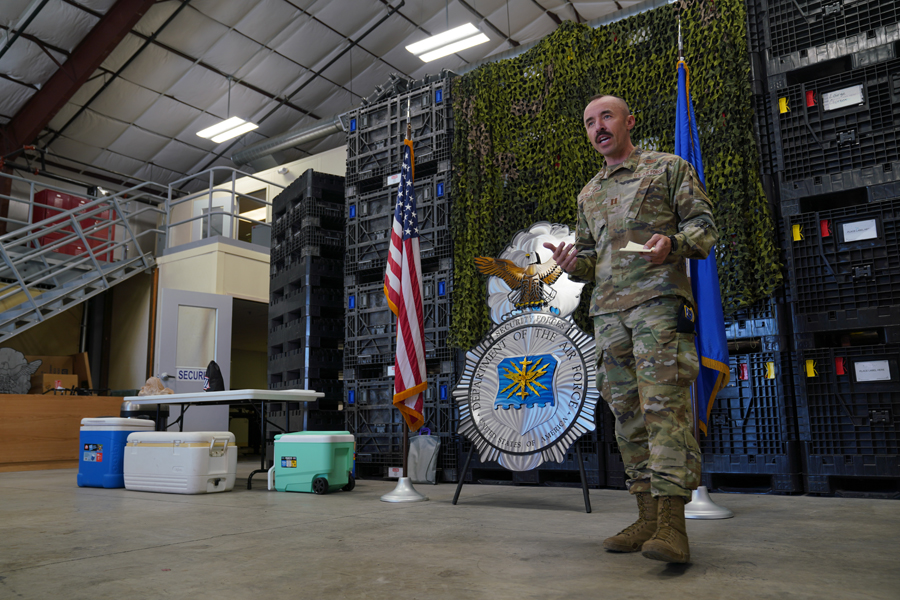
“I lost my job, and lost where I was living,” Salinas-Jimenez said. “I was living on people’s couches, sleeping in friends’ cars or sometimes just not having a place to live. Luckily for me, I was able to reach out to a recruiter and get on a plane in just a few days to go to basic training.”
Salinas-Jimenez had a clear direction in mind for his military career. Born of a desire to help others, he pursued a job in the medical field, only to be told that the Air Force prioritizes hiring individuals within its ranks, rather than brand-new trainees. He decided to take a chance that he would be picked up by accepting an open general contract and was fortunately offered an x-ray technician job during basic military training.
As fate would have it, he would soon find his calling in a different field entirely. In 2005, he volunteered to deploy to Iraq and that assignment brought him shoulder-to-shoulder with Airmen assigned to Security Forces for the first time. According to Salinas-Jimenez, their camaraderie, discipline and esprit de corps inspired him, and he found himself longing to join their ranks. They accepted him for who he was, and he seized an opportunity to extend his deployment and serve with them longer.
Because Salinas-Jimenez was no stranger to adversity, he channeled the fear that his orientation would be discovered into being the sharpest Airman he could be.
“With the Don’t Ask, Don’t Tell policy, every single day for the first 10 years of my career, I was terrified that every day at work would be my last,” he said. “In my subconscious mind, I thought that if I could be the hardest working person there, if my uniform could look better than anyone else’s, maybe if I won every award, then maybe I wouldn’t get kicked out. Like somehow that would protect me. I was obsessed with being super successful in the Air Force.”
It soon became clear to him that his fear was misplaced, as he served alongside a multitude of people from a variety of identities and backgrounds, who came together to support and serve the mission to the best of their ability.
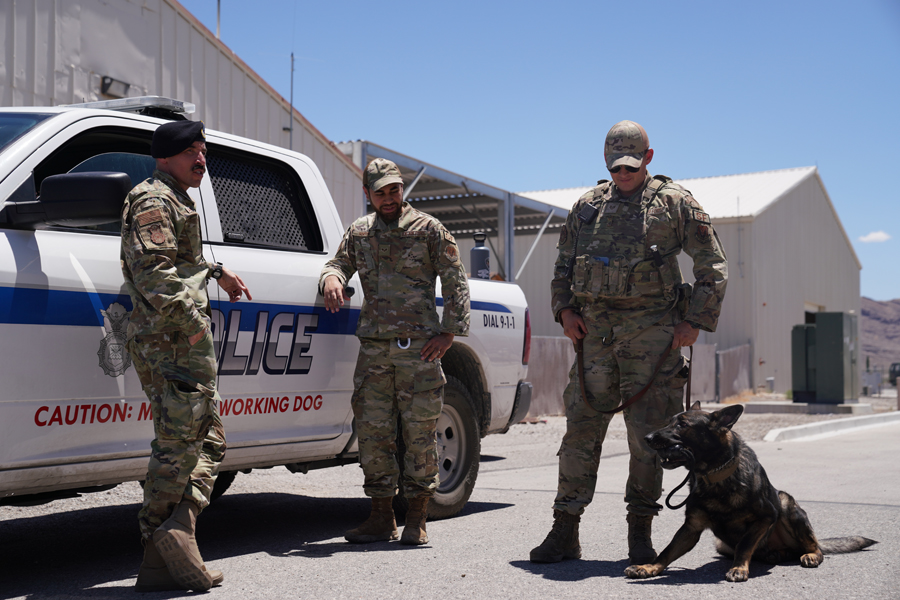
Capt. Roberto Salinas-Jimenez, officer-in-charge of logistics and resources for the 432nd Security Forces Squadron, speaks with military working dog handlers assigned to the 432nd SFS at Creech Air Force, Nev., June 30, 2023.
“It’s not easy being in the military,” said Salinas-Jimenez. “We’re expected to work really long hours and deploy and you reach that point of exhaustion, where you’re so busy with work, that nobody cares about your sexuality or whatever, because we all have to get the mission done. You start to realize that what’s important in people is individuality. I just love to come to work, and try and help other people out.”
This inclination to help others led him to love. Years into his career as an x-ray technician, he wanted to do more for the Air Force and applied to be a recruiter, ultimately getting assigned to work in the Las Vegas area. There, he reencountered the man that he met on deployment – the man he would one day marry: a heavy equipment operator assigned to Nellis Air Force Base, Nev.
“We knew that something was afoot with the universe,” said Salinas-Jimenez. “We knew that we had met for some reason, and we just had that feeling that you might be familiar with, where you think, ‘You know what? I think I’d be good to spend the rest of my life with this person. I think I could be happy with that.’”
With that mindset, when equal marriage was legalized in California, the pair drove to Los Angeles, and by the time they returned to Las Vegas, they were a married couple.
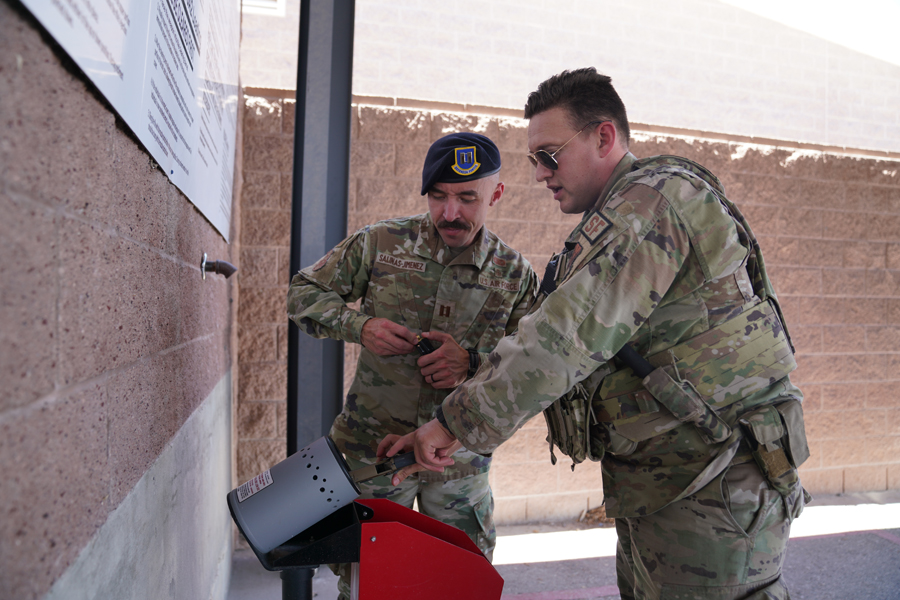
His personal life thriving, Salinas-Jimenez pursued acceptance to Officer Training School and was slotted to become a remotely piloted aircraft pilot. However, he could not shake the memories he had with those security forces members in Iraq and knew that he could impact people like them if he became a Security Forces Officer instead. Determined to mentor and provide a positive leadership environment, he switched career paths.
Now, he faced the reality that he was an officer with a spouse that had transitioned into civilian life. He believed there was an expectation for officers’ spouses to get involved by attending squadron events.
“My husband would come to every barbecue that we had, every dinner, everyone all going out for drinks, you name it,” said Salinas-Jimenez. “They loved him because he’s a really easy person to get along with.”
Salinas-Jimenez said he was treated like any other spouse in what he worried may be an unsupportive environment. As with any organization, he did encounter people that fell into certain stereotypes, but that didn’t mean they harbored any bigotry or bias. In general, he said he finds the military much more accepting than the civilian world.
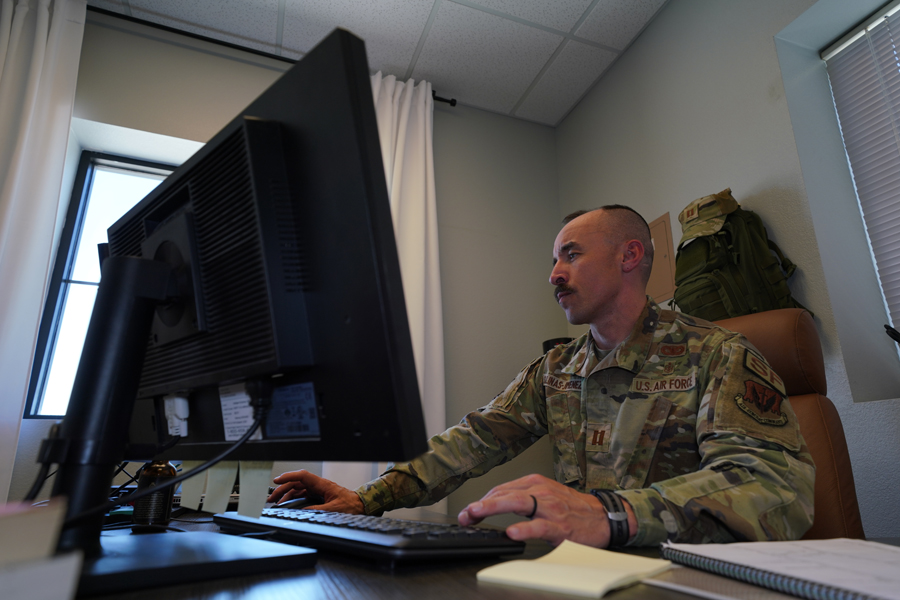
“My experience has been that the most accepting people of my life have been straight military people,” he said. “I’ve had crazy guys from the bayou, former high school football players, you name it, say, ‘Bro, I got you. You’re my boy, you know?’ I know that’s not what the world experiences.”
In 2010, the Pentagon conducted a study on repealing DADT, based on responses from 115,000 members and more than 44,000 military spouses, as well as face-to-face meetings with members on bases around the world. Seventy percent of them believed that repealing the law would have mixed, positive or no effect. When those in the overall military were asked about the experience of working with someone whom they believed to be gay or lesbian, 92 percent stated that their unit’s ability to work together was either very good, good, or neither good nor poor. Now, 12 years later, it has empowered people to serve.
“Somebody who hasn’t joined the military doesn’t realize how diversity has made us so strong as a culture,” Salinas-Jimenez said. “There are people in the military who don’t feel like they’re included in the civilian world, who find a home here.”






